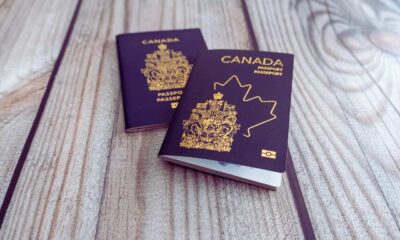Study
Saskatchewan Sees 25.4% Surge in Study Permit Allocations for the Next Academic Year

Are you considering studying in Canada? If so, you might be interested in the latest news regarding study permit allocations in Saskatchewan. As April rolled around, Saskatchewan saw a remarkable 25.4% increase in its allocation of study permit applications. This surge boosted the province’s share of study permits to 15,054, up from the previously announced 12,000.
The Impact of Increased Study Permit Allocations
Based on historical acceptance rates, this increase could result in approximately 7,200 study permits being issued to international students in Saskatchewan for the upcoming school year. This boost in study permit allocations reflects the province’s commitment to supporting international students and fostering their success within Saskatchewan’s post-secondary institutions.
Building a Supportive Environment for International Students
Saskatchewan’s Advanced Education Minister, Gordon Wyant, emphasized the province’s dedication to responsibly building its international student program. He highlighted the importance of providing the necessary support for international students to thrive academically and professionally within Saskatchewan’s diverse educational landscape.
Maximize Your IELTS Score:
Start your English journey: Learn English with British Council teachers — Up to 10% off
English Online Self-Study course: Learn English at your own pace with bite-sized exercises — Up to 10% off
Prepare for IELTS with the experts: Get the score you need with the co-creator of the IELTS test- Up to 15% off
Streamlined Attestation Letter System
Saskatchewan stands out as one of the first provinces in Canada to implement an automated attestation letter system, a requirement introduced by the Canadian immigration department. This system utilizes MyCreds, a national platform for official academic documents, to streamline the process for international students.
Under this new regulation, new post-secondary international students at the college or undergraduate level must submit a provincial attestation letter along with their letter of acceptance from a post-secondary institution when applying for an international study permit.
Efficient Processing of Attestation Letters
The province’s Advanced Education ministry has already processed over 1,200 provincial attestation letters from 11 different post-secondary institutions. This efficient processing demonstrates Saskatchewan’s commitment to ensuring a smooth transition for international students entering the province’s educational institutions.
Temporary Pause on New Designation Applications
In response to the surge in study permit allocations and to manage the influx of international students, Saskatchewan has temporarily halted new applications for designation under the Saskatchewan International Student program. However, colleges and universities interested in hosting international students for programs longer than six months will have the opportunity to apply for designation starting in January 2026.
Exemptions from Study Permit Application Cap
It’s important to note that certain categories of study permit applications are exempt from the cap imposed by Immigration Minister Marc Miller earlier this year. Exemptions include:
- Renewal applications from international students with existing study permits
- Family members of temporary residents with work or study permits
- Members of armed forces under the Visiting Forces Act
- Officers of foreign governments on exchange agreements with Canada
- Participants in sports activities or events in Canada
- Employees of foreign news companies reporting on events in Canada
- Individuals assisting congregations or groups with spiritual goals
Concerns and Considerations
Despite the increase in study permit allocations, concerns have been raised by colleges, universities, and organizations such as the Canadian Bureau for International Education (CBIE). They worry that the cap on study permit applications may send the wrong signal to international students and have unintended consequences on Canada’s international education reputation.
Larissa Bezo, President and CEO of CBIE, expressed concerns about the potential negative impact of the study permit cap on Canada’s global education brand. The CBIE emphasizes the need for a balanced approach to address issues such as affordable housing without jeopardizing the benefits of international education.
The surge in study permit allocations in Saskatchewan reflects the idea of supporting international students and fostering a welcoming environment within its post-secondary institutions. Despite challenges and concerns, Saskatchewan remains dedicated to providing opportunities for international students to pursue their academic and professional goals. With continued collaboration between government agencies, educational institutions, and stakeholders, Saskatchewan aims to maintain its position as an attractive destination for international students seeking quality education and vibrant cultural experiences.





















